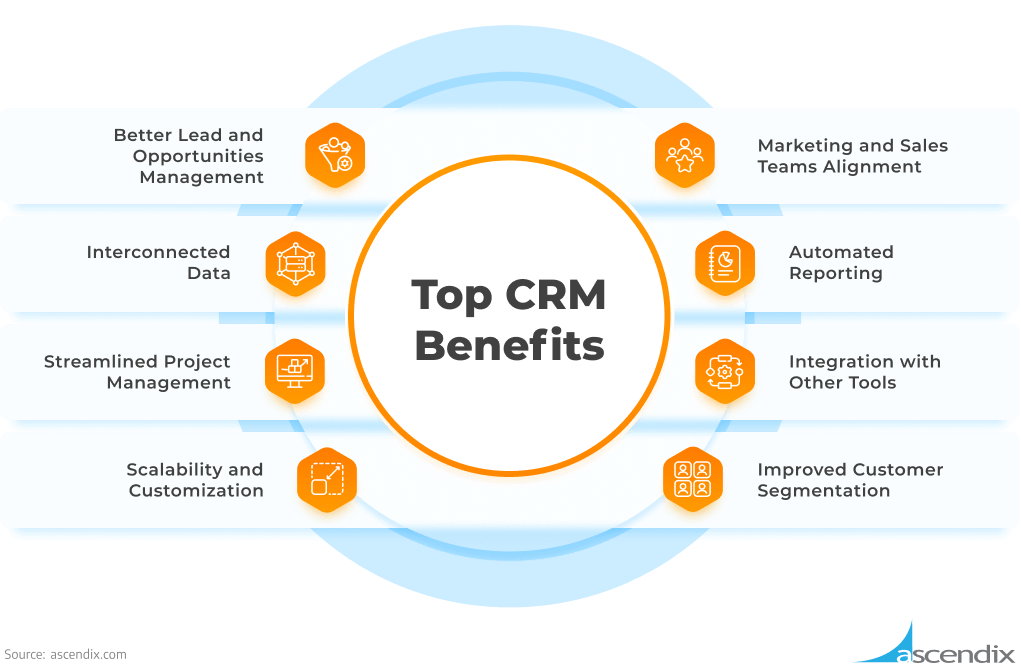
In an increasingly competitive business landscape, leveraging the right tools is vital for success. For organizations striving to improve sales performance, a Customer Relationship Management (CRM) system can be a game-changer. Selecting a CRM tailored to the unique needs of your business is crucial—especially when targeting the hottest markets in the USA. Below, we delve into the top features to look for in a CRM that can empower your sales team and boost revenue.
Understanding CRM and Its Importance
What is a CRM?
A Customer Relationship Management (CRM) system is a technology solution used by businesses to manage interactions with current and potential customers. It harnesses data analysis about customers’ histories with the organization to enhance relationships, streamline processes, and improve profitability.
Why is CRM Essential for Sales?
In today’s data-driven marketplace, a CRM system holds several advantages that can support sales efforts:
- Centralized Customer Data: A CRM allows businesses to store all customer information in one place, enabling easier access to vital data.
- Improved Sales Forecasting: By analyzing customer behavior and sales trends, businesses can make informed predictions about future sales.
- Enhanced Communication: A CRM system enhances communication within the sales team and with clients, ensuring everyone is on the same page.
Key Features to Look for in a CRM
When it comes to dominating sales in the USA’s hottest markets, certain features can make or break your CRM experience. Here are the top features to prioritize:
1. User-Friendly Interface
Importance of Intuitive Design
A user-friendly interface is critical for quick adoption by your sales team. With a system that is easy to navigate, sales representatives can concentrate on what matters most—selling. An intuitive design reduces training time and promotes efficiency.
2. Customization Options
Tailoring to Your Business Needs
Every business has unique processes, and a CRM should provide customization options to fit your specific needs. Features to consider include:
- Custom Fields: Ability to create fields that capture essential data unique to your industry.
- Personalized Dashboards: Real-time dashboards that display relevant metrics for quick insights.
3. Robust Reporting and Analytics
Leveraging Data for Informed Decisions
Effective decision-making is grounded in data analysis. A comprehensive CRM should offer strong reporting and analytics tools that let you:
- Track sales performance metrics
- Analyze customer trends and behaviors
- Generate reports on lead-to-sale conversion rates
4. Integration Capabilities
Connecting with Other Tools
A CRM is most effective when it can seamlessly integrate with other tools and applications in your tech stack. Look for systems that easily integrate with:
- Email Marketing Platforms: For targeted outreach campaigns.
- Accounting Software: To streamline financial processes.
5. Lead Management Features
Nurturing Sales Opportunities
Strong lead management features help sales teams prioritize leads efficiently. Key functionalities to look for include:
- Lead Scoring: Automated scoring based on lead behavior and engagement.
- Automated Follow-Ups: Systems that automate reminders for follow-up, ensuring no lead slips through the cracks.
6. Mobile Accessibility
On-the-Go Connectivity
With today’s workforce often on the move, mobile accessibility is more important than ever. A CRM that offers a mobile app enables your sales team to access important customer information and update records, regardless of their location.
7. Customer Support and Training
Ensuring Smooth Implementation
Having access to solid customer support and training resources can significantly enhance your CRM experience. As you evaluate potential CRM systems, consider:
- 24/7 support availability
- Comprehensive training materials and resources
The Value of Automation in CRM
Enhancing Efficiency
Automation in CRM can alleviate repetitive tasks, allowing your sales team to focus on selling rather than administrative duties. Key areas for automation include:
- Email Campaigns: Automated follow-up emails based on customer actions.
- Reporting Timelines: Automatic report generation and distribution to stakeholders.
Boosting Productivity
With a CRM designed with automation, your team can:
- Increase productivity with fewer manual tasks.
- Reduce response times to customer inquiries, enhancing customer satisfaction.
Understanding CRM Security Features
Protecting Customer Data
Given the sensitive nature of customer data, security features must be a top priority when selecting a CRM system. Important security aspects to consider are:
- Data Encryption: Securing data both in transit and at rest.
- User Access Controls: Limiting access based on user roles.
Compliance with Regulations
Ensure that your CRM complies with industry-specific data regulations like GDPR and CCPA, which govern how personal data ought to be handled and protected.
Exploring Integrations and Compatibility
Assessing Compatibility
As mentioned earlier, integrations are crucial. A CRM should work seamlessly with your existing systems. Evaluate the following:
- External API Availability: Ensures that you can connect other tools and software easily.
- Third-Party Integration Support: Compatibility with popular applications in the market.
Future-Proofing Your CRM Choice
Choosing a CRM that is adaptable and embraces evolving technology will ensure that you stay ahead of the competition in a changing market. Look for systems that regularly update their features in response to user feedback and industry trends.
Maximizing the Adoption of Your CRM
Fostering a Sales-Oriented Culture
For your CRM to succeed, it must be embraced by your team. Foster a sales-oriented culture that values data-driven decision-making. Encourage your team to leverage the CRM for tracking leads and customer interactions.
Continuous Training and Feedback
Invest in continuous training sessions and solicit feedback from users regularly. Keeping your team informed about updates and enhancements can lead to better engagement with the CRM.
Conclusion
In conclusion, selecting the right CRM is fundamental for organizations wanting to dominate in the competitive landscape of the USA’s hottest markets. By focusing on user-friendly interfaces, customization, robust analytics, integration capabilities, and strong support, you can empower your sales team to excel.
Remember, the best CRM is one that aligns with your business’s unique processes and helps foster a culture grounded in data-driven decision-making. With the right tools and strategies, you can drive your sales success to new heights.